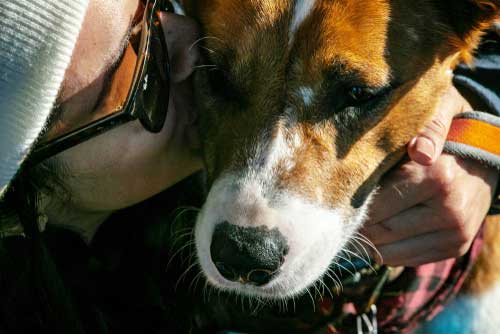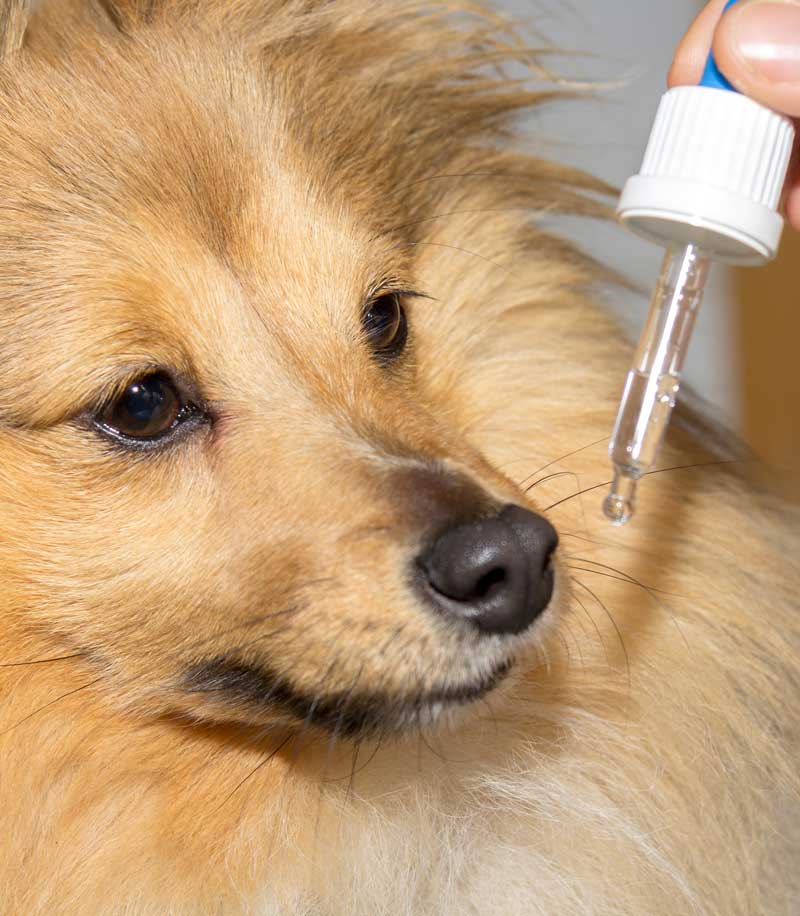The hormone cortisol is important for immune support and stress regulation. When your dog suffers from a lack or excess of this hormone, it can spell major trouble for their well-being.
The medical term for Cushing’s disease is hyperadrenocorticism, which occurs when your dog’s body over produces the hormone cortisol. Now hyperadrenocorticism is not easy or fun to say, so let’s stick with the term Cushing’s disease. When produced normally in your dog’s body, cortisol actually does some incredible things. Cortisol helps your dog modulate their immune system and respond to stress; however, too much cortisol can be extremely harmful to your dog.
Hyperadrenocorticism
Causes of canine cushing’s disease
The most common cause of cushing’s disease in dogs, responsible for about 80-85% of all cases, is a pituitary tumor. These tumors are usually benign but in some rare cases they can be malignant. Ready for another really long name? When a dogs cushing’s disease is due to problems with the pituitary gland it’s called pituitary-dependent hyperadrenocorticism (PDH).
Another known cause of cushing’s disease in dogs is when a dog is given too much corticosteroid medications. People use it to treat allergies and immune disorders. The good news is that you can simply reverse it by stopping or lowering the dosage.
Ailment Guides:
Symptoms of cushing’s disease in dogs:
Every dog is different and their symptoms may not be noticeable right away. Many of the symptoms associated with Cushing’s disease can also be associated with other serious diseases. It is important that you see your veterinarian so they can help properly diagnose your dog. With that said, here are some common symptoms normally associated with Cushing’s disease in dogs:
-
Drinking and urinating more than usual
-
Urinating in the house
-
Eating more than usual
-
Swollen and tender abdomen
-
Sudden weight gain
-
Hair loss
-
Lethargy
-
Weakness
-
Irritation and darkening of the skin
-
Bruising
Treatment for cushing’s disease
Some mild cases of Cushing’s disease don’t require immediate attention. It is important that you monitor your dog closely to make sure their condition doesn’t worsen. Signs that it’s time for treatment include:
- High blood pressure
- Excessive panting
- Bladder control issues
- Reluctance to exercise
- Infections
When treating pituitary gland Cushing’s disease, vets usually prescribe a drug called Trilostane. This drug does not play well with other medication. You should let your veterinarian know any additional medications your dog may be taking.
Treatment of a adrenal tumor is a little more complicated and can include a CT scan or MRI. Vets will do these tests to find out if there is any possible metastatic spread of the disease. If no metastases are there, medication will be given for a period of time. This will help to shrink the tumor before eventually removing it.
Learn More:
Tips On Using Cbd Oil To Treat Your Pets
What Type Of Animals Can Benefit From Cbd Oil
Can Benefit Dogs Cbd For Dogs And How It Can Change Your Pets Quality Of Life
Why CBD can benefit your dog suffering from cushing’s disease
CBD derived from hemp can assists your canine in dealing with the symptoms of Cushing’s disease in dogs.
Cannabidiol (CBD) can be very beneficial for balancing your dog’s hormone production. CBD oils and treats have shown some favorable interactions with your dog’s ECS (Endocannabinoid System). The main reason for Cushing’s Disease is benign tumors in the pituitary glands. Cannabidiol not only helps to manage Cushing’s disease dog behavioral problems, lethargy, anxiety or sleeplessness, but including CBD in your dog’s Cushing disease dog diet can reduce the effects of gastrointestinal issues, skin & coat deterioration and pain/inflammation.
CBD is generally effective at treating the symptoms of Cushing’s Disease in your dog, but it is not formulated to treat the disease itself. Think of CBD as a supplement that can reduce the severity and frequency of many of the disease’s symptoms.
Cannabidiol is a phytocannabinoid that have a prominent effect on numerous ailments – including epilepsy and seizures. Remedies containing CBD achieve this by interacting with your dog’s endocannabinoid system. Almost all animals, like people, have an endocannabinoid system; this network of neurotransmitters is integral to physiological processes like memory, mood, pain, stress and appetite.
As you can see by the wide scope of ailments that CBD effects, it is clear how introducing CBD into your dog’s routine can help to maintain a healthy, balanced hormone system.
Article Guides:
FAQ’s
What is Cushing’s Disease in dogs?
Cushing’s disease, also known as Hyperadrenocorticism, is a condition that effects the adrenal glands in dogs, causing them to overproduce cortisol/cortisone. This overproduction of cortisol can have serious health ramifications, such as damaging the kidneys, developing diabetes or even leading to premature death.
What is the life expectancy of a dog with Cushing’s Disease?
On average, Cushing’s disease in dogs can lead to a 2-3 year life expectancy – but these numbers can fluctuate greatly depending on your canine’s overall health, fitness and diet.
How does a dog act with Cushing’s Disease?
Signs of Cushing’s disease can vary, but typically dogs will exhibit symptoms of insomnia, frequent and/or spasmodic urination, increased appetite and hydration, or loss of hair (sometimes as major shedding).
What are the neurological signs of Cushing’s Disease in dogs?
Symptoms of Cushing’s disease in dogs can manifest in many ways. Cushing’s disease dog behavioral or neurological symptoms can include nervousness, anxiety, anorexia, lethargy, loss of weight, dizziness or disorientation, and sometimes seizures.
What should be your dog’s diet if they have Cushing’s Disease?
Cushing’s disease dog diets are typically centered around lower fat intake as this can help to counteract the elevated levels of cortisol associated with Cushing’s disease in dogs.








